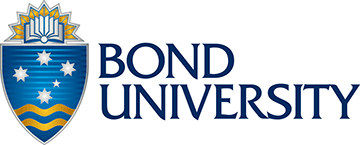Endocrine and Thyroid Surgery Brisbane
Dr. Vujovic treats thyroid disorders and hyperparathyroid conditions.
THYROID SURGERY IS INDICATED FOR A NUMBER OF REASONS:
- Proven malignancy
- Suspicion of malignancy
- Atypia on biopsy of a thyroid nodule where malignancy cannot be excluded.
- Retrosternal extension of a goitre (enlargement of the thyroid into the chest) which may cause symptoms.
- Overactivity of the thyroid (hyperthyroidism) that is not responding to treatment or where treatment is either not tolerated or not taken by the patient.
Thyroid surgery will involve an overnight stay in the hospital. Usually the patient will be admitted on the day of surgery. It is routine for patients to have their vocal cords assessed by an ENT Surgeon prior to surgery (and therefore documenting the status of the vocal cords). The surgery entails making a small incision in the skin crease in the lower neck. The incision is usually 5 or 6 cm in length which will enable exploration of both sides of the thyroid if necessary. Surgery is performed by close capsular dissection (staying close to the body of the thyroid) using a Harmonic scalpel. This instrument uses high frequency sound waves to both coagulate and sever vessels. This results in a faster and safer operation. Usually a drain will be inserted on each side of the thyroid (if the entire thyroid is removed) or on one side (if only one half of the thyroid is removed). The drain is removed the day after surgery prior to discharge. The neck wound is closed with dissolving sutures which are subcuticular and therefore not visible. There will be a waterproof dressing enabling the patient to shower without concerns that the wound could be exposed to moisture.
COMPLICATIONS OF THYROID SURGERY:-
- SCARRING – There will be a small scar at the base of the neck. Usually this will be in a skin crease. Over time, the scar will blend in with natural skin creases and usually result in an excellent cosmetic result. The neck is extremely vascular and therefore there is very good oxygenation of tissues. As a result, wounds on the neck and face will heal very well.
- BLEEDING – With the very good vascular supply in the neck, there is an increased risk of bleeding of bruising. Very infrequently the patient may need to return to the operating theatre if there is significant bleeding postoperatively. Fortunately, this is quite uncommon.
- INFECTION – All surgical wounds could possibly become infected. To minimize this, intravenous prophylactic antibiotics are given at the time of surgery.
- RECURRENT LARYNGEAL NERVE INJURY – There is a 0.5-1% risk of damage to the recurrent laryngeal nerve which supplies the vocal cords on each side of the larynx. If this was to occur, there would be permanent hoarseness of the voice. Fortunately, in many cases, hoarseness is only temporary as often nerve function will be restored. The vocal cords are routinely checked by an ENT Surgeon prior to surgery so that a baseline impression of vocal cord function can be noted.
- HYPOCALCAEMIA (LOW CALCIUM LEVELS) – During thyroid surgery, there is a small risk that the parathyroid glands (responsible for regulating calcium levels) could be injured or inadvertently removed. With a hemithyroidectomy (half the thyroid removed) there is little risk of low calcium levels postoperatively as at least two of the four parathyroid glands will not be endangered. With a total thyroidectomy (the entire thyroid removed) there is a 3-5% risk of the parathyroid glands being permanently damaged resulting in a permanent low calcium level requiring calcium and vitamin D supplementation. It is common for up to 50% of patients to have a temporary drop in their calcium levels which will return to normal over a two to three week period.
- FURTHER SURGERY – Occasionally when there are atypical nodules present, a frozen section will be performed at the time of surgery. The specimen will be assessed by a Pathologist and if this was to show proven malignancy then the patient would have their entire thyroid removed. Occasionally, the frozen section will be equivocal but the following day the final result may indicate malignancy. In that scenario, the patient would then require to return to the operating theatre to have the remainder of their thyroid removed.
Further information will be provided on parotid and hyperthyroidism shortly.


